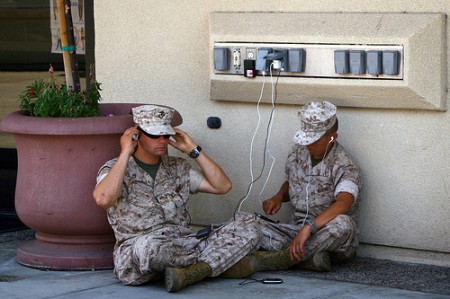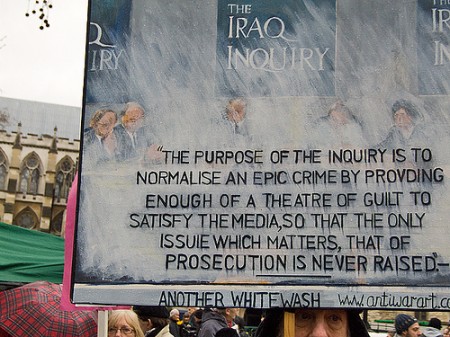
This week, the biggest names in the mobile phone industry declared war on Apple Inc by forming an alliance to combat the iPhone’s dominance over the apps market. And on Tuesday Microsoft launched a counterattack on the handset with its new Windows Phone 7. The battle waged by rival companies against Apple’s growing monopoly in the world of consumer electronics has become a commonplace media fixture, with the metaphor of war a recurring theme in press coverage.
But outside of the public consumer sphere, Apple’s market has extended to the world of actual warfare. The iPod touch is now being issued to US military personnel due to its multitude of battlefield applications and cost-effectiveness. This single device can be programmed to process the multitude of data of modern warfare, including linking soldiers and drones via wireless internet networks, and as a navigation and translation tool. Apps have been created that allow soldiers to receive intelligence on their local area, translate Arabic, Kurdish and several Afghan languages, and make ballistics calculations.

